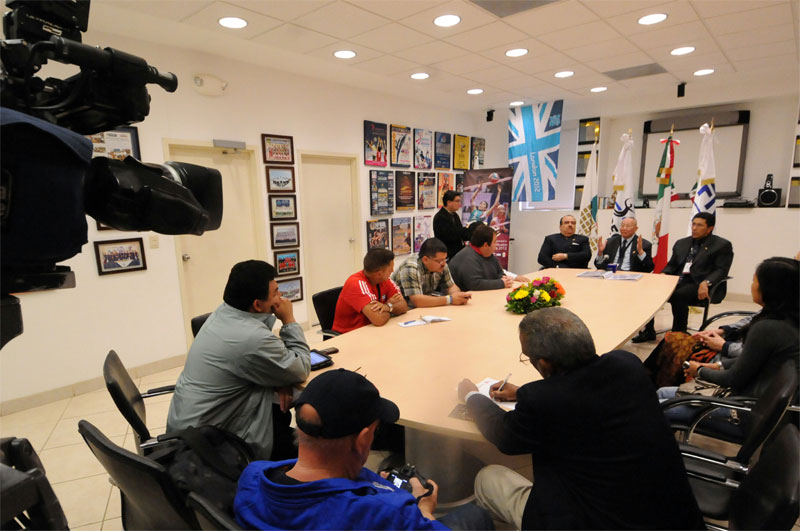|
 Wei
committed to organize democratic elections Wei
committed to organize democratic elections
TIJUANA, Mexico, April 30, 2012 – The FIVB President Jizhong Wei
is committed to organize and to conduct a democratic process for
the election of the new president of the institution for the
next four-year term during the next FIVB Congress to be held in
Anaheim, USA from September 19-21.
“Since I am not looking to be reelected as president, I can
organize and supervise the most democratic elections in the
history of FIVB.” Wei said during a meeting with a group of
journalists covering the NORCECA Women’s Olympic Qualification
Tournament in Tijuana.
When asked about his future plans after stepping down from the
presidency, Wei said he will be “always in disposition to help
and cooperate in any request made by the new authorities.”
“I had the opportunity to become president and my goals were to
change the image of FIVB in the sport world and to make changes
in the internal governance according to the following four basic
principles: transparency, democracy, delegation of power and
supervision.”
The FIVB President also commented on the importance of the
“Heroes” publicity campaign of FIVB which was launched last year
and pursues to attract the attention of the public, bring more
sponsors to the sport of volleyball and beach volleyball and to
increase the number of TV viewers.
“We are also associated to the United Nations goals of the
millennium to end poverty in the world and volleyball and beach
volleyball combined with education can help to achieve them,” he
said.
“Sport is not only competition,” Wei added. “Sports
organizations must assume the role of educating people and
taking more social responsibilities.”
He praised the authorities of the State of Baja California,
Mexico for the opportunities of education they are giving to the
underprivileged young athletes through the programs of the Sport
and Physical Education Institute under the direction of Saul
Castro Verdugo, who is also member of the FIVB Board of
Administration.
“The sport policy of Baja California and Tijuana is very
positive and I tell you that good achievements come from good
policy and that come from good ideas and from good leaders,” he
stated.
After visiting the High Performance Center of Baja California
and having the opportunity to make contact with the athletes,
Wei said he has the impression that sports occupy a very
important social position in Mexico, especially in Tijuana, Baja
California.
“I have been told of many touching stories about where these
youngsters come from,” he said. “Here they try to combine sport
with social work and we must remember that youth in sports is
one for the tools to stop poverty in our societies.”
Asked to evaluate the development and state of volleyball in
NORCECA, Wei stressed on difficulties to manage a volleyball
confederation with particular characteristics.
“Most of the countries are very small and islands with low
population,” he said. “Transportation is not very easy but they
have achieved 100 percent of participation in our events with
the assistance from FIVB.”
“They have been able to organize a team-work but for that you
need a good captain like (Cristobal) Mr. Marte who has a lot of
passion for volleyball and beach volleyball and also for
participation and opportunities.”
Wei can see Mexico organizing major events of volleyball and
beach volleyball in the future as he mentioned the case of past
world junior and youth championships held in Tijuana and
Mexicali in recent years.
“You have taken the first steps in that direction and I have no
doubt that in the future we can have big competitions here, it
is only a matter of time.” |

